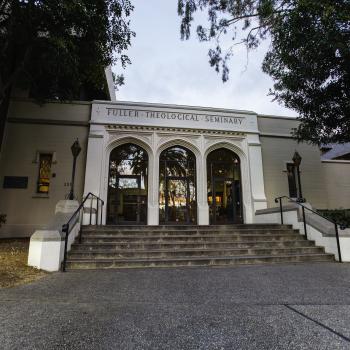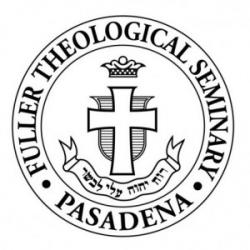By Reed Metcalf
I attended a church when I was younger that got ripped apart by a really nasty split. The fracture had more to do with manipulative leadership than anything else, but I could not help associating the congregation’s malfunction with its faith tradition, which was pretty high church. I never understood why we did things the way we did in that church in the first place, which made the whole system an easy target for me. The result was that I was more than willing to grapple on to this slogan—or rather, this set of slogans—that are very much in vogue in the evangelical church.
“It’s not a religion, it’s a relationship.”
“I’m not religious, I’m spiritual.”
“We don’t do rituals here, we only worship.”
I’m sure you have heard (or even subscribe to) some of these mantras. I used these phrases all the time when I was younger, teaching high schoolers the same thing. But here is a problem.
The Old Testament describes a religion.
Jesus was religious.
Jesus practiced rituals.
The Torah is founded on the Exodus from Egypt and revolves around how Israel is to worship the God who saved them. Jesus institutes a new ritual for the Christian church when he begins the Lord’s Supper, framed in the context of the Passover meal—a ritual—that is celebrating the Exodus and worshipping YHWH. Jesus participated in the Synagogue, attempted to cleanse and right the Temple, and attended the feasts dictated in Leviticus. The baptism of John that Jesus participates in—a baptism of repentance, of reorienting into the way of YHWH—is a brand-new ritual that finds its origins in ritual Jewish washings. Jesus’ own death has immediate physical effects on two things: the earth and the Temple, redefining who is high priest. Yet the office of high priest does not disappear as Christ performs the priestly duties for us in the presence of God the Father in Heaven (please see the Letter to the Hebrews). Unless you are willing to chuck out three-quarters of Holy Scripture, you cannot get around the fact that “religion” and “ritual” are part of the Christian story.
I can feel some of you cringing even now.
But let’s discuss something here. One of the biggest stigmas attached to the words “religious” and “ritual” is that they are things that are empty or devoid of heart. I know, I was a part of a high church tradition and I often felt worship to be simply motions with no real connection to anyone or anything. I have also realized that there is a differentiation to be made in quality—there can be good ritual or bad ritual, just as there can be bad contemporary worship or good contemporary worship. But ritual itself is not bad. Neither is religion.
![Ludovico Mazzolino [Public domain], via Wikimedia Commons.](https://wp-media.patheos.com/blogs/sites/470/2015/05/1524_Mazzolino_twelve_year_old_Jesus_teaching_in_the_temple_anagoria.jpg)
“What will you worship?”
There is no middle ground. There is no apathy. There is either siding with God—with love, self-sacrifice, grace, holiness—or with Satan—with self-interest, power, condemnation, immorality. We all worship something. One or the other. What will it be?
You see, every action we do is worship. It is either worshipping God or Satan. Let’s face it: we don’t always want to do things God’s way, because that means dying to ourselves and picking up our cross. Sometimes we don’t want to do it, our hearts we scream defiance, our brain makes excuses to get out of it….
And we pick up our cross anyways. We do what is right when our hearts aren’t in it.
This is religion.
This is ritual.
Actions that point to what we hold as ultimately the best and truest thing in existence. Tooth-brushing is a ritual that says that I think dental hygiene is important. Tithing is a ritual that says I think the people that money is going to help are important because they are all created in the image of God. Confession of sins, to honor what Christ did on the cross. Assurance of pardon, to remember that Christ rose from the dead. The Lord’s Supper, to declare that the death and resurrection broke the power of sin and death and removed our guilt. We sing praises to declare that there is and forever shall be one King over all the cosmos, and we choose him.
Even when we don’t want to.
We side with and worship God instead of Satan. We may be kicking and screaming on the inside, but we still do what God has asked us to do. Sing his praises when we hurt. Drink his cup when he feels distant. Confess our sins when we actually enjoyed those sins. Read our Bible when it tells us things we don’t want to hear. Get baptized when we actually don’t want to die. Whether you attend a church “with no set structure” or one that follows a book every week, whether it is a rock band or organ or no instruments or prayers said together or prayers made up on the spot, if you attend a church to worship God you are being religious. You are engaged in actions that are repetitive in nature that ultimately say “God is important and I choose him.” If you show up and your heart is not in it, you are being religious; if you show up and your heart is in it, you are being religious.
It is like agape. Evangelical Christians everywhere understand this Greek word to be how Christ asked us to relate to each other. This is not love that we feel, but love that we do. It is doing the best for the other person regardless of our feelings towards them.
When we perform ritual, we are acting in a way that says, “I choose to follow God even when I can’t seem to put my heart in it.”
Religion is to do; whether we feel or not is irrelevant.
But this is what Jesus asked of us, right?
“Follow me.”
Jesus never said, “Make sure you feel good about me all the time. That’s when I know you are actually in it, when you are actually worshipping.”
He only said, “Follow me.”
If you feel like doing it when you are performing an act of worship, that is great. But ultimately, worship is about acting towards God, not about us feeling good about ourselves or doing things that make us happy. Yes, Christianity is a relationship with God Most High, mitigated by our High Priest Jesus, and our religion is how we maintain our part of the relationship. Love is shown not through words and fuzzy feelings, but through actions that show we listen to the other person and take them seriously. Our rituals show that we value the things that God values and that we take him seriously. The religion is the relationship. The ritual is part of the love.
And here is one of the greatest parts: the rituals we perform, whether we want to call them that or not, work on us. Well, they don’t work on us. God does. Part of ritual action—singing praises on Sunday morning, for instance—is us taking a posture of submission to God. When I sing praises to God—even if I am feeling particularly ornery and rebellious that day—I am saying that God is king, not me. The Holy Spirit works mysteriously through our obedient actions to change our disobedient hearts. This is what it means to follow: the romance of heartfelt worship can at times completely dry up, but obedience—one foot in front of the other—helps reshape us into the people who see the cosmos as God sees it. We re-become the people who find joy, life, and energy in worship when we submit to God.
I know what people are trying to say when they pull the “It’s not a religion” card, but the fact of the matter is that every person is religious. We the church must own this and preach this. It’s all about who we are worshipping. Yes, it is miraculous in the highest sense of the word that we have a relationship with God Almighty. But we still worship him. The relational aspect of the Triune God’s interaction with us does not obliterate the obligation to worship him as God of the Universe; in fact, our side of the relationship is ritual action in worship. The only other option when we dismiss or eschew truly worshipping God—even when we have no desire too—is to worship something else, following patterns of behavior that allow us to put other things or persons at the center of our lives, and that is a relationship that none of us can afford to have.
This piece originally appeared in The SEMI, the student publication of Fuller.
Reed Metcalf (MDiv ’14) works as a Media Relations and Communications Specialist at Fuller Theological Seminary. He writes for and curates the Fuller Blog and contributes regularly to FULLER magazine. Follow him on Twitter at @reedmetcalf.
Follow Fuller Seminary on Twitter at @fullerseminary.












